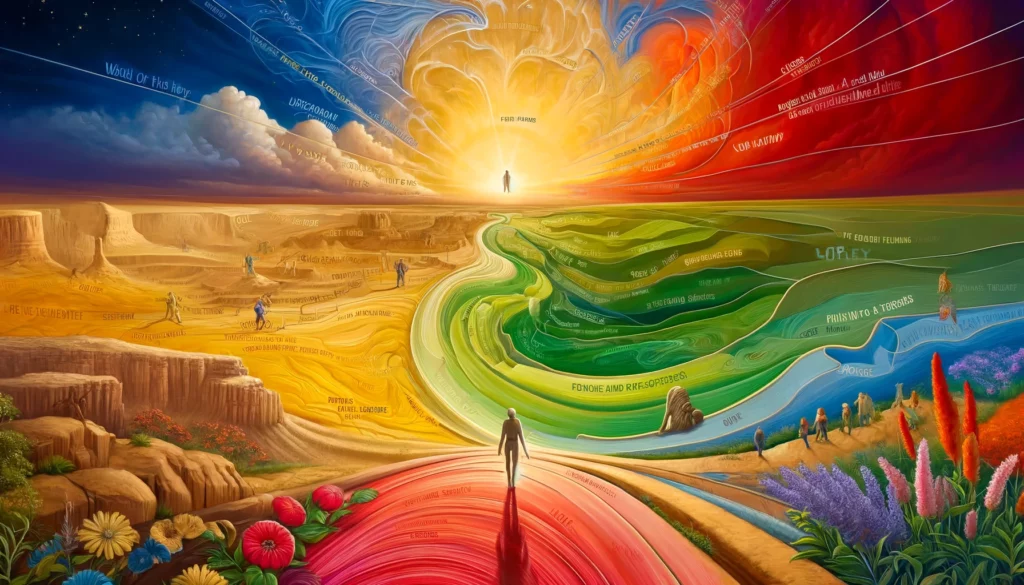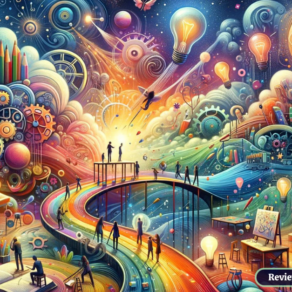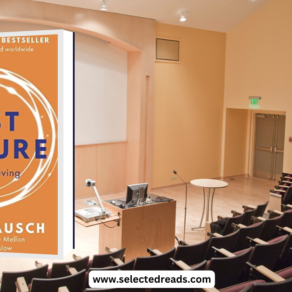In today’s post, we will dive into Brené Brown’s fascinating work, Atlas of the Heart. This book is a comprehensive guide to understanding the vast range of human emotions and experiences that define our lives. The purpose of this exploration is to empower us to articulate, comprehend, and master our emotional responses, thus enhancing our interactions and relationships. Throughout this discussion, we’ll unpack the core concepts of the book, delve into its profound insights, and reflect on how it can transform our approach to personal and professional relationships.
Atlas of the Heart Summary
“Atlas of the Heart” is a deeply insightful book that provides a comprehensive exploration of the spectrum of human emotions and experiences. The author, Brené Brown, who is known for her extensive research into human emotions, vulnerability, and courage, charts a course through eighty-seven distinct emotions and experiences that shape the human condition, effectively creating a cartographic guide to the human heart.
The book begins by setting up its core premise—that the ability to accurately name, understand, and express our feelings and experiences gives us power. This power isn’t about control, but rather it comes from gaining understanding, deriving meaning, and making informed choices in life. Brown’s deep research background is evident as she delves into the intricacies of various emotional states and the experiences that shape our lives.
The emotional and experiential journey the book embarks upon is diverse and encompassing, ranging from joy, love, and triumph, to grief, fear, and shame. Each emotion or experience is meticulously examined, fleshing out its impact on our lives, how it manifests, and the implications it has on our relationships and connection to others.
Photo: Amazon
“Atlas of the Heart” goes beyond a mere discussion of emotions. It offers a pragmatic framework for building meaningful connections with others. Brown presents skills necessary for this connection, offering actionable strategies that readers can employ. This practical aspect makes the book not just a theoretical exploration of emotions, but a handbook for enhancing interpersonal relationships and fostering empathy.
The book is filled with heartfelt personal narratives, coupled with rigorous research, supporting each aspect of the emotions and experiences discussed. Brown uses storytelling effectively, weaving her own brave moments and heartbreaks into the narrative, encouraging readers to share and steward their stories, thereby strengthening their connections with others.
A recurring theme throughout the book is the idea of choice and second chances. By understanding and owning our emotions, we are better equipped to navigate the complex landscapes of our lives, opening up a universe of new choices and opportunities. Brown emphasizes that with the “right maps” we can journey anywhere without fear of losing ourselves.
In “Atlas of the Heart,” Brown not only shares her rich insights gained from two decades of research but also equips the reader with a fresh language and tools to explore their emotional world. She voices a desire for the book to serve as an atlas for everyone, leading them on a path of self-discovery, empowerment, and deeper connection with others.
Related: Summary of Brené Brown’s Book Dare to Lead!
Atlas of the Heart Quotes
Here are some insightful quotes from Atlas of the Heart:
1. “Science is not the truth. Science is finding the truth. When science changes its opinion, it didn’t lie to you. It learned more.”
2. “I am responsible for holding you accountable in a respectful and productive way. I’m not responsible for your emotional reaction to that accountability”
3. “Avoidance will make you feel less vulnerable in the short run, but it will never make you less afraid.”
4. “Good friends aren’t afraid of your light. They never blow out your flame and you don’t blow out theirs—even when it’s really bright and it makes you worry about your own flame.”
5. “There are too many people in the world today who decide to live disappointed rather than risk feeling disappointment. This can take the shape of numbing, foreboding joy, being cynical or critical, or just never really fully engaging.”
6. “The more difficult it is for us to articulate our experiences of loss, longing, and feeling lost to the people around us, the more disconnected and alone we feel.”
7. “Communicating our expectations is brave and vulnerable. And it builds meaningful connection and often leads to having a partner or friend who we can reality-check with.”
8. “Comparison is the crush of conformity from one side and competition from the other—it’s trying to simultaneously fit in and stand out. Comparison says, “Be like everyone else, but better.”
9. “Choosing to be curious is choosing to be vulnerable because it requires us to surender to uncertainty. We have to ask questions, admit to not knowing, risk being told that we shouldn’t be asking, and, sometimes, make discoveries that lead to discomfort.”
10. “People will do almost anything to not feel pain, including causing pain and abusing power”
11. “The idea that regret is a fair but tough teacher can really piss people off. “No regrets” has become synonymous with daring and adventure, but I disagree. The idea of “no regrets” doesn’t mean living with courage, it means living without reflection. To live without regret is to believe we have nothing to learn, no amends to make, and no opportunity to be braver with our lives.”
12. “Empathy is not relating to an experience, it’s connecting to what someone is feeling about an experience.”
Final thoughts
“Atlas of the Heart” by Brené Brown is a transformative read that navigates the intricate landscape of human emotions with sensitivity and scholarly insight. It equips us not only to name what we feel but to understand the depth and implications of those feelings, enhancing our relationships and personal growth. Brown’s invitation to explore our emotional terrains using her detailed maps encourages us not just to traverse but to deeply engage with every experience life offers. Her blend of personal anecdotes and robust research makes this book a beacon for anyone eager to enhance their emotional literacy and live more connectedly.







